Welcome to Labkafe ~ Orientallabs Retail Services Private Limited
There are many different types of lab setups, but all lab designers agree on one point: the lab flooring must be of the best quality. The reason for this is that laboratory floors are probably the worst-treated place in a civilian, non-industrial facility. It has to be strong and impervious against a lot of harsh handling and yet be perfectly usable. That does not come easy.
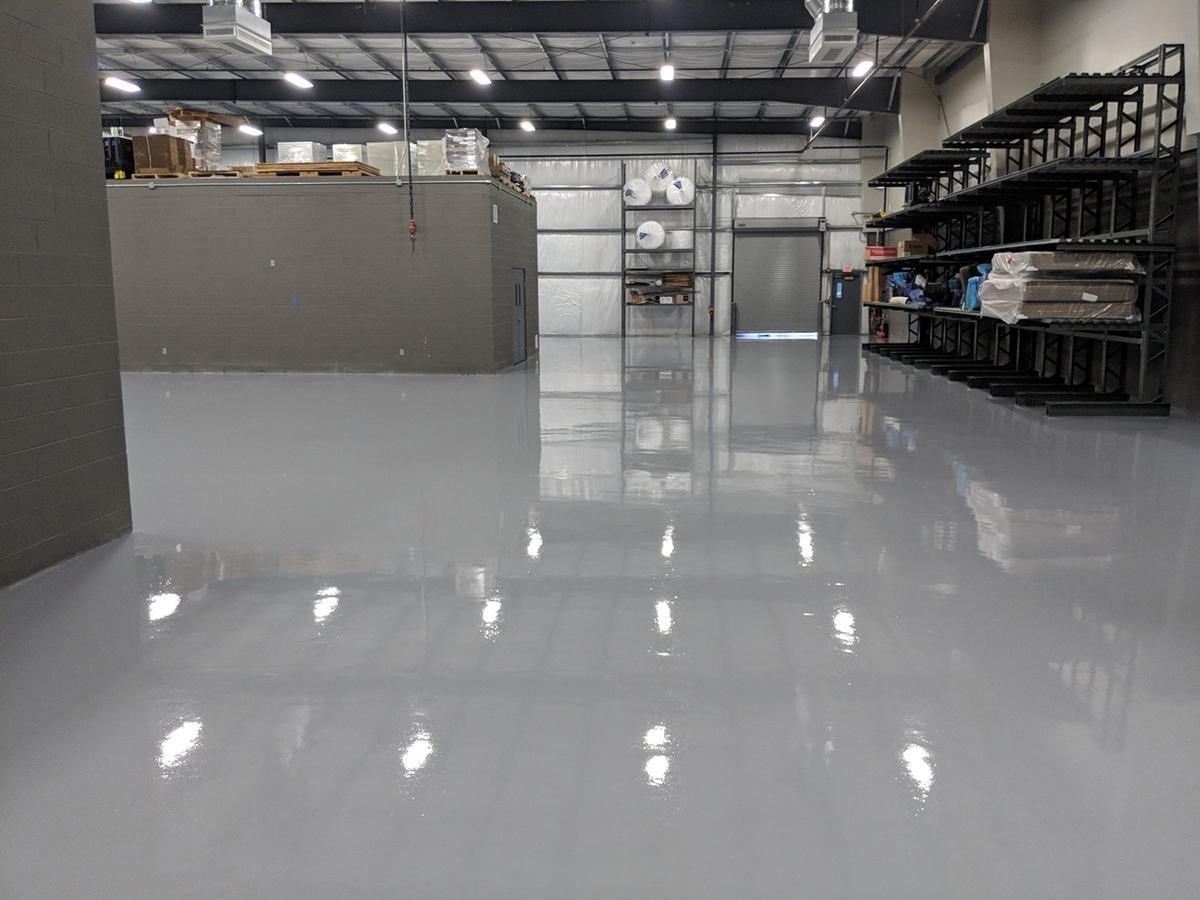
If you are doing your laboratory setup for the first time, read this article thoroughly to understand the different types of lab floorings and their advantages and disadvantages. But first, let’s look at the properties of the ideal lab flooring.
Well above and beyond your basic cement or tiled floors, an ideal lab flooring must be able to withstand a lot of abuse. It must not only be strong enough to bear the weight of heavy lab furniture and storage solutions and machines but also be impervious to chemical and biological hazards. To be precise, lab floorings should have the following properties.
Any lab floor is bound to experience frequent hurried pedestrian and cart traffic. As such, it should be quite durable and must not wear out with time. Also, the lab floor should have a good frictional surface that would be resistant to slip whether dry or wet. Providing an appropriate amount of traction while remaining solid and non-deteriorating over time is a big deal for any good lab flooring.
This should go without saying, but most laboratories deal with a lot of chemical substances. Which is increased a hundredfold when it’s some sort of a chemistry laboratory. And where there are chemicals, there is spillage. It doesn’t have to be very strong acid or something to damage a normal flooring ‒ even normal detergent spilled on cement can damage it.
Don’t get misguided by an assumption of crew efficiency. That it can be wiped off fast is not good enough to resist the corrosive effects of a chemical spillage. It is critical to check any test data for the type of flooring you’re buying for your lab ‒ and match it with the concentrations of the chemicals you will be using in the lab.
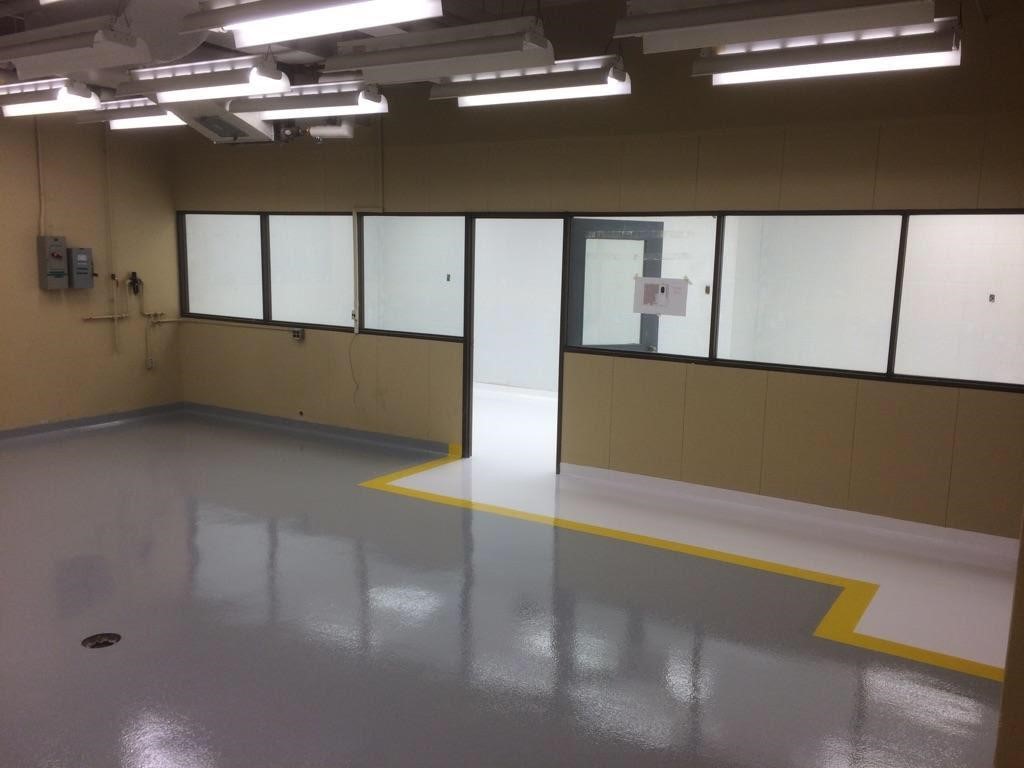
Lab floor finishes can be quite effective against chem spills ‒ but do mind which type you are getting. One type of lab floor finish acts as a sacrificial layer such that it reacts quickly with the chemical, thus neutralizing its corrosive nature. But it will have to be replaced immediately, of course. Another type of lab floor finish acts as a barrier between the spill and the flooring material, preventing any corrosion. But, if they ever get even a hairline crack due to other reasons, the spill will seep through them and slowly damage the floor below (and that can’t be wiped off).
Especially true for microbiology or virology laboratories, a lab flooring should also be impervious and neutralizing to biological elements like various microbes. Therefore, it should have some strong anti-microbial properties. It can also have bacteriostatic or antiseptic abilities, killing and preventing bacteria from reproducing.
Now, to be factual, an ideal lab flooring with all of the above properties would be prohibitively expensive and be created with very specialized substances. But in general, there are three common types of lab floorings used in most schools, colleges, and research institutes. Let’s discuss them below.
Just like operating theaters, laboratory floorings may experience a lot of harmful or potentially damaging liquid spills. Vinyl sheet flooring is one of the very best defenses against this sort of situation. They provide the best protection against chemical agents and have decent anti-bacterial properties while being safe for hurried foot traffic in an affordable window. There is a great vinyl lab flooring from Labkafe available as part of our laboratory furniture setup.
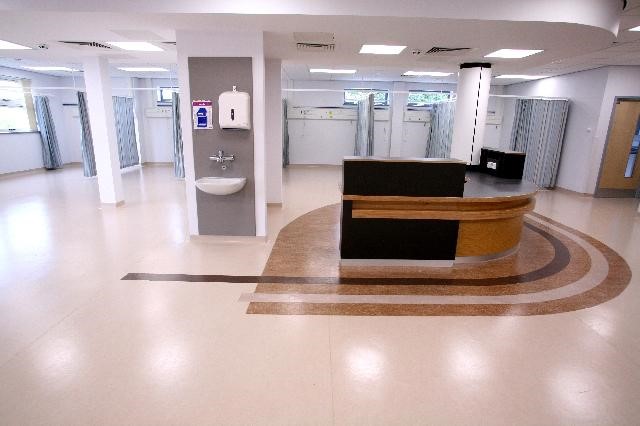
Vinyl floors come as completely smooth, without joints and seams to prevent any leakage or seepage. Furthermore, the composition of vinyl slows down and in some cases prevents the spread of fungi and bacteria. They are also anti-static so they can be used well in physics labs. Furthermore, vinyl flooring feels soft and warm to the foot, giving a good feeling while you work on it. Being mostly PVC, they are easy to clean and you can use strong detergents safely to remove hard stains and dangerous chemicals.
Whilst with all these advantages, vinyl flooring does have two letdowns. They are, as you may expect, not the cheapest flooring solution. Also, vinyl lab floorings are susceptible to fire damage.
The epoxy resin forms a plastic-like surface when its component chemicals are mixed, and becomes one of the most inert materials mass-produced for regular work. Almost completely impervious to lab chemicals and dead to microbes, it forms the most dependable lab space surface. However, they are also the most expensive of lab flooring solutions.
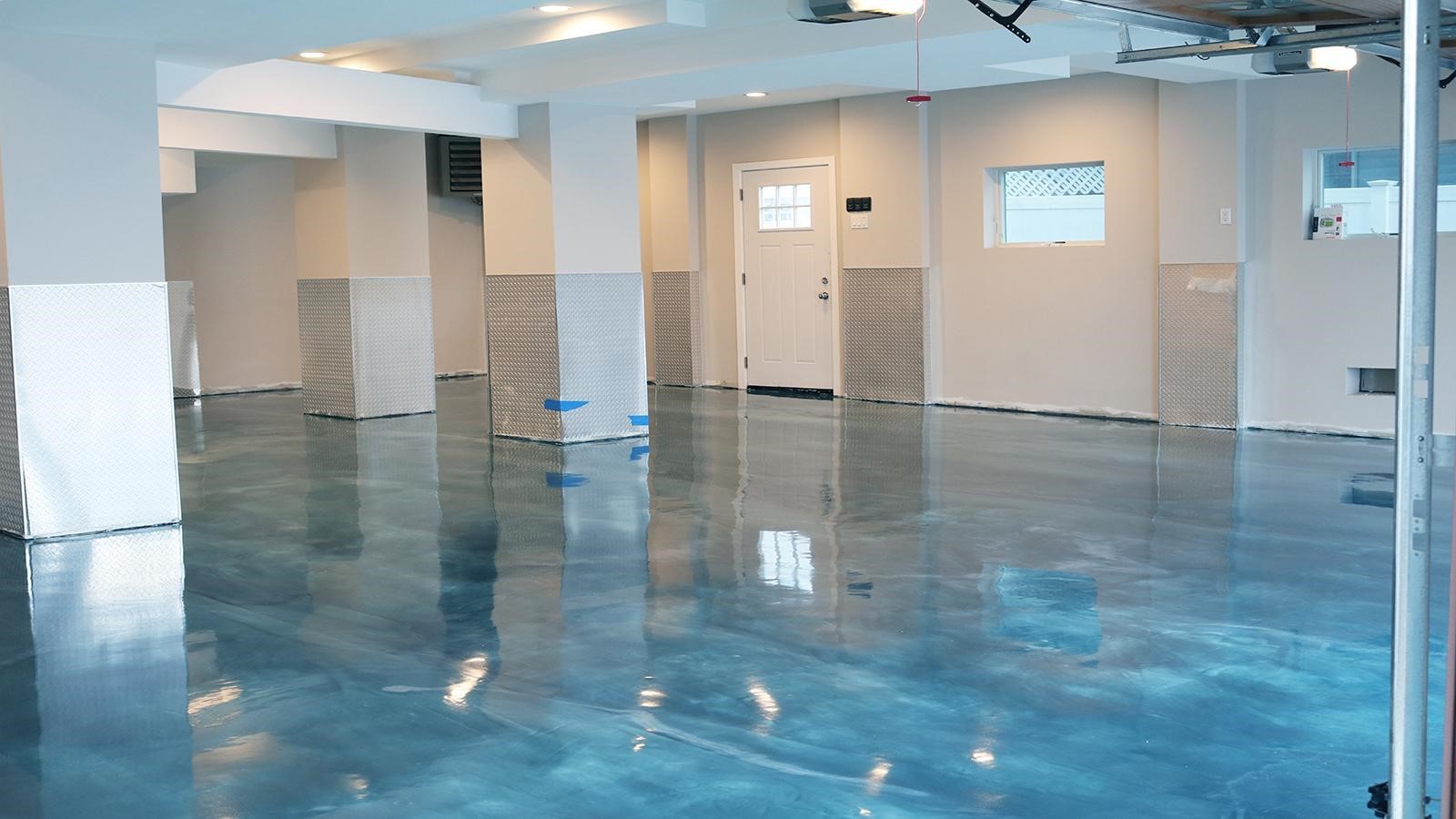
Epoxy lab flooring is safe and durable to walk on and can withstand a lot of weight in small spaces. They are one of the most hygienic and sterile surfaces to be found in most school and college laboratories. They are very much resistant to skids and slips, and they do not allow any liquid or other stuff to seep underneath to touch the concrete bottom.
That being said, epoxy is susceptible to wear and tear. It wears out eventually and has to be replaced. The replacement process is not easy either, since the concrete surface underneath has to be completely clean and perfectly pristine. All of these make epoxy resin one of the most dependable but very expensive lab floorings.
This is the cheapest lab flooring solution available to you for building up your lab. For that reason, it is very popular in many industrial laboratories. Sealed concrete provides a very strong and durable surface that is moderately resistant to most chemicals used in labs in high volumes. Since it is sealed (if properly done), there is little to no chance of spillage seeping into the concrete. It also lasts the longest of time and is completely impervious to regular fire.
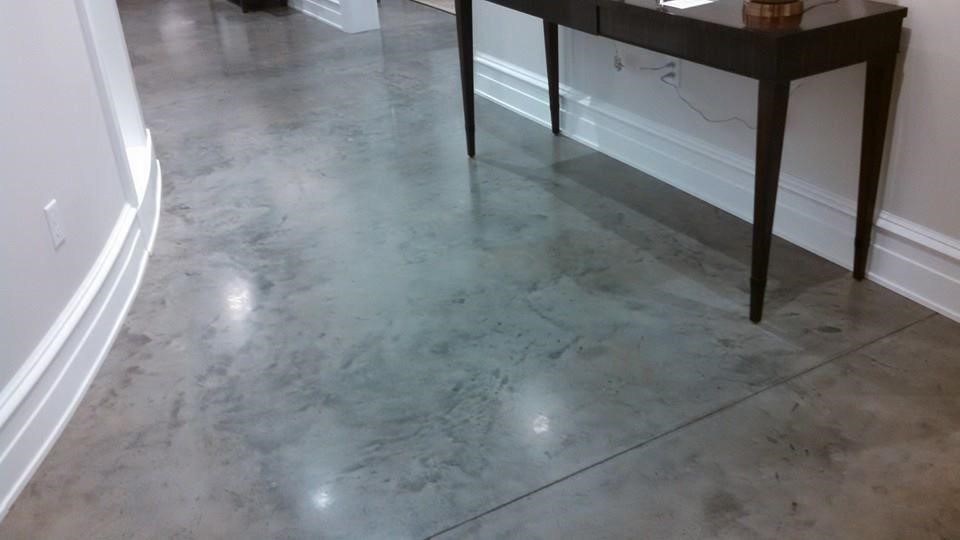
However, being cheap has its faults, as you can expect. Sealed concrete gets slippery when wet, leading to a lot of falling down and accidents. It is particularly cold and gets a dingy and moist feeling in a high-humidity atmosphere. Also, if the sealant breaks for any reason, then the concrete underneath becomes extremely vulnerable.
The question is of balance. How can you balance cost and safety perfectly? The epoxy is the best lab flooring ever used in civilian facilities. However, there is the sealed concrete which is very popular in the industrial labs because of its durability and cost-effectiveness ‒ but it is very less reliable.
So far, vinyl lab flooring seems to be the best option being both easy on the pocket and impervious to chemical and biological hazards. Labkafe offers a premium vinyl lab flooring solution for all school college labs that is cost-effective, safe, and very durable. We offer this as a part of our lab furniture installation ‒ please contact the sales team for further information.
Labkafe is among the most promising laboratory supplies vendors in India. We manufacture and supply lab equipment, lab furniture, lab consumables, lab glassware, lab machines and more! Not only we manufacture lab items, we export to international resellers too. We fulfill CBSE ICSE ISC IGCSE IB State board affiliation requirements for schools by providing affiliation packages to schools. Our featured products are:
Chosen by over 1200 schools, colleges, universities, research labs, government agencies and private companies to build or renovate their laboratories, Labkafe stands as your best friend when it comes to labs. We are also a registered OEM on GeM. Our clients love us because we provide the best quality of lab products, free demos, free installation, and support for ever.
Do you wish to experience excellence too? Why not contact us today at [email protected], or call 9147163562 directly ‒ we are always available to serve. You can also use the chat button in the corner to connect to one of our representatives instantly!
Jun 09, 2022 by Swarna Karmakar
May 19, 2022 by Swarna Karmakar